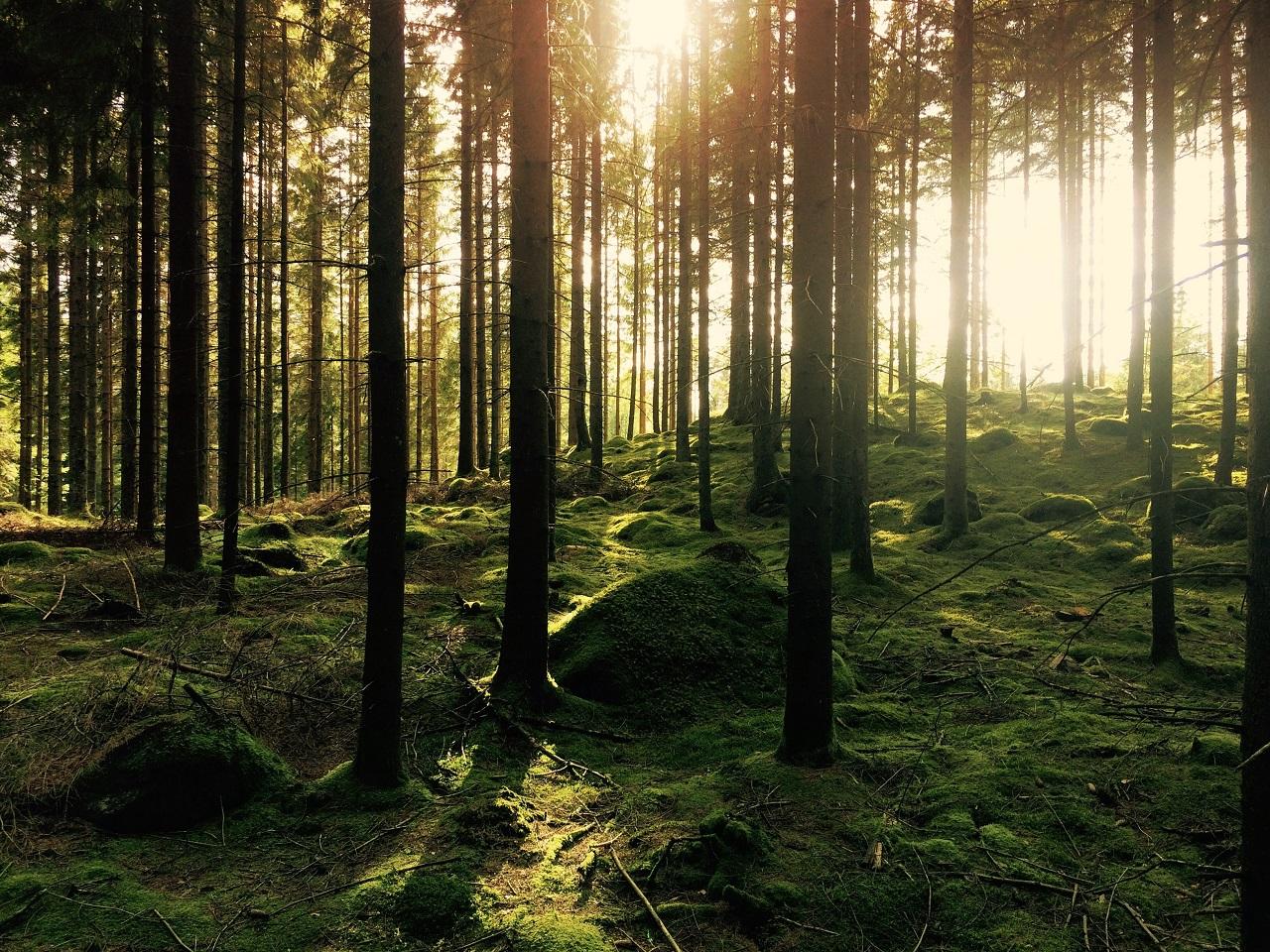Loss of biodiversity is one of the most pressing challenges of our time. Mass extinction is threatening numerous species in an unprecedented manner. For example, the population sizes of vertebrates have dropped on average 68 precent in less than 50 years.1 The evaluation of Finnish biodiversity strategy demonstrates the alarming loss of biodiversity also in Finland.2
Biodiversity loss is a systemic challenge and demonstrates our failure as human species to live within the planetary boundaries. Currently, our societies are built on overexploitation of nature’s resources, which threatens biodiversity – the rich diversity of species and their habitats.3
Democracy and maintaining rich biodiversity
Societal problems, such as the degradation of biodiversity, raise questions of the role of democracy in protecting biodiversity. So far liberal democracies have failed to protect and preserve the richness of biological diversity. Thus, is the protection of biodiversity compatible with democratic governance?
The robustness and the quality of democracy seem to be connected positively with biodiversity conservation. Share on XAccording to existing research, things are not so straightforward.4 For example, Bio-Dem’s databank5, which enables exploring the connection between biodiversity data and dimensions of democracy, demonstrates the complexity of the question. For Ryden et al.6 the connection between biodiversity and democracy is often positive, yet in most cases mixed. Research on forest degradation has demonstrated that in weak democracies degradation may be greater than in autocratic states. Then again, in strong democracies, where there is a strong civil society, the rate of forest degradation is often smaller.7 Thus, the robustness and the quality of democracy seem to be connected positively with biodiversity conservation.
Yet, the short-sightedness of decision-making in representative democracies has been argued to hinder biodiversity conservation. The benefits of conservation may not be evident immediately, which makes it important that decision-makers understand the long-term benefits of conserving the richness and diversity of species and habitat. Indeed, biodiversity conservation requires long-term, parliamentary decisions that contribute to the conservation of nature across electoral terms.
The strength of democracies in protecting biodiversity is that in democracies the space for civil society tends to be greater than in other forms of governance. This enables citizens to mobilise decision-makers to take concrete actions to protect biodiversity, especially when its loss has direct implications on their own lives. Democracy can be a tool for local participation and living within the existing planetary boundaries. Simultaneously, in democracies the rule of law contributes to effective implementation of laws that support environmental monitoring and nature protection.
Towards sustainable democracy
A more solution-oriented question directs attention to how democracies can best protect biodiversity and thus how biodiversity and democracy are best reconcilable. This is a question that has also attracted scholarly interest.
Alternatives such as environmental democracy, ecological democracy, biodemocracy8 and even radical democracy have been proposed. All of these alternatives are centred on the need to reform democratic systems to better respond to the ongoing sustainability crisis. Thus, what we need is democracy that is also ecologically sustainable.
According to the Westminster Foundation for Democracy (WFD)9 environmental democracy is grounded on transparency, participation, and justice. Improving the fairness and inclusiveness of democratic systems is thus key for reconciling democracy and biodiversity.
Democracy that is grounded on justice is more participatory and inclusive and provides opportunities for everyone, including those in the most marginalised positions to participate in decision-making. In particular, those who are the most affected by the degradation of biodiversity should have the right to participate in decision-making.10
Democratic decision-making should be more future-oriented and centred on intergenerational justice. Share on XIncreasing inclusiveness of decision-making and fostering an enabling environment for local participation is vital, given that local people have usually excellent place-based knowledge on biodiversity and its conservation.11 This is particularly important in natural resource management, since the sustainable use of natural resources is often connected to the participation of local people in decision-making.
On the other hand, democratic decision-making should be more future-oriented and centred on intergenerational justice. We as human species are part of nature and so the degradation of biodiversity today has devastating implications for the well-being of future generations. Thus, it is evident that our ability to solve existential dreads, such as the ongoing biodiversity crisis, requires better and stronger democratic governance. Better, more sustainable, and inclusive democracy is a part of the solution for protecting biodiversity.
1 WWF. (2020). Living Planet Report 2020. https://livingplanet.panda.org/en-us/ [23.11.2020]
2 Auvinen, A-P., Kemppainen, E., Jäppinen, J-P., Heliölä, J., Holmala, K., Jantunen, J., Koljonen, M-L., Kolström, T., Lumiaro, R., Punttila, P., Venesjärvi, R., Virkkala, R. & Ahlroth, P. (2020). ‘Suomen biodiversiteettistrategian ja toimintaohjelman 2012–2020 toteutuksen ja vaikutusten arviointi’, Valtioneuvoston kanslia. Valtioneuvoston selvitys- ja tutkimustoiminnan julkaisusarja, 26.8.2020.
3 Euroopan ympäristökeskus (2020). Luonnon monimuotoisuus – ekosysteemit. 10.2.2020. https://www.eea.europa.eu/fi/themes/biodiversity/intro [20.11.2020]
4 Li, Q. & Reuveny, R. (2006). ‘Democracy and environmental degradation’, International Studies, Quarterly 50, 935–956. https://doi.org/10.1111/j.1468-2478.2006.00432.x
5 Bio-Dem https://bio-dem.surge.sh/ [26.11.2020]
6 Ryden, O., Zizka, A., Jagers, S.C., Lindberg, S. I., & Antonelli, A. (2020). ’Linking democracy and biodiversity conservation: Empirical evidence and research gaps’, Ambio, 49: 419-433. https://doi.org/10.1007/s13280-019-01210-0
7 Buitenzorgy, M., & Mol, A.P.J. (2011). ‘Does Democracy Lead to a Better Environment? Deforestation and the Democratic Transition Peak’, Environmental Resource Economics, 48: 59-70. https://doi.org/10.1007/s10640-010-9397-y
8 Wong, J.K. (2016). ’A Dilemma of Green Democracy’, Political Studies, 64(1S): 136-155. https://doi.org/10.1111/1467-9248.12189
9 Westminster Foundation for Democracy (2020). WFD’s approach to environmental democracy. https://www.wfd.org/wp-content/uploads/2020/11/Global-environmental-crises-a-democratic-response_WFD_2020-updated.pdf [19.11.2020]
10 Wissen, M. (2020). ‘The Climate Crisis and the Question for Democracy’, Global Dialogue, 10:3. https://globaldialogue.isa-sociology.org/the-climate-crisis-and-the-question-of-democracy/ [20.11.2020]
11 Takacs, D. (2019). ‘Whose voices count in biodiversity conservation? Ecological democracy in biodiversity offsetting, REDD+, and rewilding’, Journal of Environmental Policy & Planning, 22:1, 43-58. https://doi.org/10.1080/1523908X.2019.1661234
—
The views expressed are those of the author and do not necessarily reflect the views of Demo Finland.

